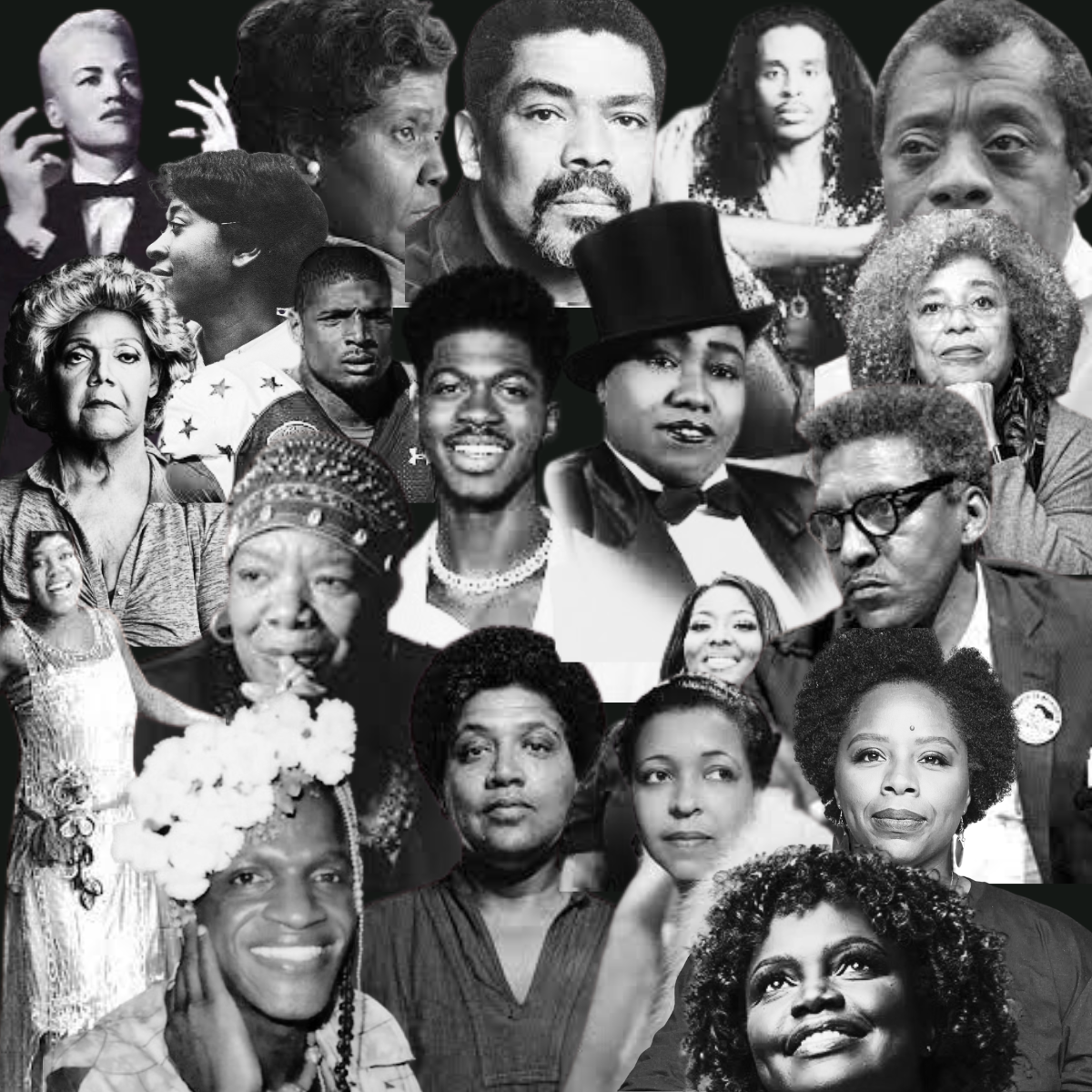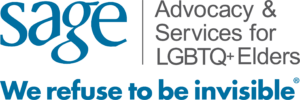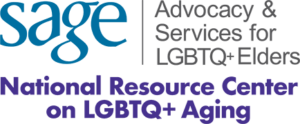
Black History Month reminds us of the monumental contributions of individuals of African descent throughout history. This month, we explore the intersectionality of Black and LGBTQ+ identities, celebrating the diverse narratives and achievements that have shaped the civil rights and LGBTQ+ movements.
Understanding Intersectionality:
The concept of intersectionality, coined by Kimberlé Crenshaw, highlights how multiple identities—such as race, gender, and sexual orientation—intersect, creating unique experiences for those who belong to more than one marginalized group. For Black LGBTQ+ individuals, this intersectionality is a crucial aspect of their lived experiences, reflecting a combination of racial and sexual or gender-based discrimination. This complex intersection deserves recognition and celebration, helping us move beyond one-dimensional narratives and understand the struggles and triumphs of Black LGBTQ+ individuals in all their diversity.
Black LGBTQ+ Pioneers and Trailblazers:
Black LGBTQ+ individuals have been pivotal in shaping the trajectory of both the civil rights and LGBTQ+ rights movements. Bayard Rustin, a key advisor to Dr. Martin Luther King Jr., was an openly gay man and instrumental in organizing the 1963 March on Washington for Jobs and Freedom. Rustin’s role underscores how the struggles for racial justice and LGBTQ+ rights are intertwined, proving that advocacy for civil rights is also advocacy for LGBTQ+ rights.
Audre Lorde, a Black lesbian poet and activist, used her writing to examine race, gender, and sexuality, creating a robust body of work that continues to inspire. Marsha P. Johnson, a Black transgender woman, was one of the leaders of the Stonewall Riots 1969, which marked a turning point in the LGBTQ+ rights movement. Johnson’s activism centered on the needs of marginalized LGBTQ+ communities, particularly transgender and homeless individuals of color.
Additionally, figures like Barbara Smith, a Black lesbian feminist and co-founder of the Combahee River Collective, made significant contributions to the development of intersectional feminism, advocating for racial justice and LGBTQ+ rights, laying the groundwork for the contemporary intersectional movement.
These pioneers, alongside countless others, have impacted civil rights, LGBTQ+ rights, and the recognition of intersectionality, shaping future generations’ understanding of justice.
Black LGBTQ+ Artistic Contributions:
The contributions of Black LGBTQ+ individuals to the arts are vast and transformative. James Baldwin, a pioneering gay writer and social critic, used his literature to explore the complexity of race and sexuality, influencing generations of writers, activists, and scholars. His works, including Giovanni’s Room and The Fire Next Time, remain integral to the conversation on race and sexuality in America.
Contemporary Black LGBTQ+ artists like Janelle Monáe and Frank Ocean continue to break boundaries. Monáe’s genre-defying music and bold exploration of pansexuality in her work challenge traditional notions of identity. At the same time, Ocean’s open discussion of his bisexuality has reshaped perceptions in the music industry. Additionally, the vibrant drag ball culture, popularized by the documentary Paris Is Burning, created by and for the Black LGBTQ+ community, remains a key form of artistic expression.
These artistic contributions not only reflect the resilience of Black LGBTQ+ individuals but also provide powerful platforms for visibility and inclusivity in the arts.
Activism and Community Building:
Black LGBTQ+ individuals have been at the forefront of activism, advocating for racial and LGBTQ+ justice. Marsha P. Johnson and Sylvia Rivera, two Black and Puerto Rican transgender activists, co-founded the Street Transvestite Action Revolutionaries (STAR), which provided support and resources for homeless LGBTQ+ youth. Their work continues to influence activism today.
The National Black Justice Coalition (NBJC), founded by LGBTQ+ activists such as Mandy Carter, advocates for the needs of Black LGBTQ+ individuals, focusing on issues such as marriage equality, HIV/AIDS prevention, and anti-discrimination efforts. Organizations like the Black AIDS Institute, which addresses the disproportionate impact of HIV/AIDS in Black communities, are also led by Black LGBTQ+ individuals.
These activists have shaped the conversation on both Black and LGBTQ+ rights, continuing the work of intersectional advocacy that seeks to dismantle systemic inequalities.
Facing Challenges and Disparities:
Black LGBTQ+ individuals face significant and unique challenges shaped by both racial and sexual orientation discrimination. According to the 2020 LGBTQ+ Health Equity Report by the Centers for Disease Control and Prevention (CDC), Black LGBTQ+ people are at higher risk for mental health issues, violence, and substance abuse due to compounded stigma.
Additionally, the rates of HIV/AIDS disproportionately affect Black gay and bisexual men. The Centers for Disease Control and Prevention reported in 2020 that while Black men represent only 13% of the U.S. population, they account for 43% of new HIV diagnoses. Structural inequities such as limited access to healthcare, societal rejection, and systemic violence continue to affect this community, making it crucial for policymakers to address these disparities through targeted interventions and resources.
Cultural Influence and Legacy:
Black LGBTQ+ individuals have profoundly shaped global culture through music, fashion, and performance. Figures like Billy Porter and Janelle Monáe have redefined fashion by challenging gender norms and using their visibility to push for more inclusive representations. In the music industry, LGBTQ+ Black artists like Lil Nas X and Frank Ocean have made significant strides in challenging the traditionally heteronormative expectations of genres like hip-hop and R&B, fostering an environment of greater acceptance and openness about sexual orientation.
By challenging norms and embracing authenticity, Black LGBTQ+ individuals continue to inspire a global movement toward inclusivity and equality. Their cultural contributions encourage acceptance and create spaces where all individuals can celebrate their unique identities.
SAGECare Training:
As part of fostering inclusivity, SAGECare’s training, Enhancing Care for LGBTQ+ Older Adults of Color, addresses the unique needs and experiences of this group, which often faces compounded challenges of aging, racism, and homophobia. The training offers best practices for working with LGBTQ+ older adults of color, empowering caregivers and service providers with the tools to provide compassionate, culturally competent care. It also highlights essential figures from the LGBTQ+ People of Color community, helping participants understand this community’s intersectional struggles and contributions.
Celebrating Black LGBTQ+ Contributions This Month:
This Black History Month, let us take the time to honor and celebrate the diverse contributions of Black LGBTQ+ individuals. By embracing their stories, acknowledging their struggles, and recognizing their triumphs, we deepen our understanding of Black history and move closer to a more inclusive and just society for all.





